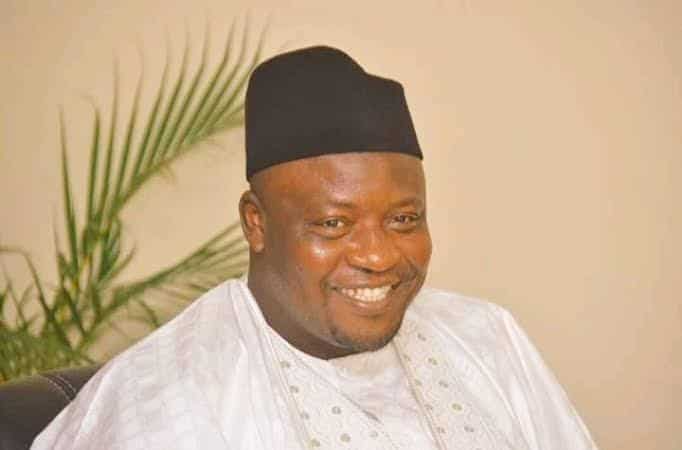…Tinubu’s Tax Regime Choking, Workers Bearing The Brunt — NLC
ABUJA – The House of Representatives, on Wednesday, approved for second reading four tax reform bills presented by President Bola Tinubu to the National Assembly.
The bills, comprising the Nigeria Revenue Service (Establishment) Bill, the Nigeria Tax Bill, the Nigeria Tax Administration Bill, and the Joint Revenue Board (Establishment) Bill, were passed without opposition from members.
These bills were first introduced on October 8, 2024, but their progression had been delayed due to disagreements among members, particularly concerning the content of the Nigeria Tax Ad
objections from northern leaders and the Nigeria Governors’ Foministration Bill. The bill faced rum, which had previously held up the debate.
Before the debate on Wednesday, Speaker Abbas Tajudeen emphasised the importance of thorough consultations with constituents, urging members to engage with their communities regarding the benefits of the proposed bills.
To streamline the process, the House consolidated the four bills into a single document for the purpose of the debate.
While members raised some concerns over certain sections of three bills that appeared to conflict with provisions of the constitution, as well as a few other clauses, the overall sentiment was one of strong support.
The House unanimously favoured the bills for a second reading.
Minority Leader of the House, Kingsley Chinda, who appeared to speak on behalf of the minority group, expressed support for the overall intention behind the four proposed bills but raised concerns about certain aspects of their provisions.
Chinda acknowledged that the bills aim to reform the nation’s tax system to enhance revenue generation.
However, he emphasised that while the spirit of the bills is commendable, some of the specific provisions need further scrutiny.
“We all agree that the intention behind these four bills is positive. However, we have reservations about certain provisions. While we oppose some aspects of the bills, we support their underlying goals. We want to reassure Nigerians that we will monitor these provisions closely, and at the appropriate time, we will ensure that any issues with the provisions are addressed in the best interest of the nation,” Chinda stated.
He advocated for a reduction in the Value Added Tax (VAT), emphasising that it is possible to lower taxes while simultaneously addressing conflicts and improving various areas of concern.
During the debate on the bills, House Leader, Prof. Julius Ihonvbere, praised the president for having the courage to introduce legislation aimed at reforming the nation’s tax laws.
These reforms, he noted, are designed to tackle issues such as multiple taxation, improve revenue collection, and diversify the economy.
While acknowledging those who voiced opposition to the bills, the House Leader expressed that these differing views have contributed to strengthening the proposed reforms, which aim to overhaul the country’s tax system, one of the oldest in the world.
Hon. Ihonvbere stated that the proposed tax reform bills aim to empower citizens by supporting small-scale businesses and boosting revenue generation. The reforms are expected to create a more conducive environment for businesses to flourish.
He further explained that the tax bills will simplify the current complex tax system by reducing the number of taxes imposed on companies.
This, he said, will lead to sustainable growth. Additionally, the reforms will ease the financial burden on the less privileged by lowering personal income tax and introducing zero taxes on essential sectors such as food, healthcare, and education. The bills also propose zero tax on the minimum wage.
According to Ihonvbere, the number of taxes in the country will decrease from over 60 to just about nine. Disputes arising from tax-related matters will also be resolved within 14 days, ensuring greater efficiency in the tax system.
He urged members of the House to actively contribute to shaping history by reforming the tax system, with the goal of fostering revenue growth, boosting employment, and improving the lives of ordinary Nigerians.
Minority Whip, Ali Isa (PDP: Gombe), commended the speaker for providing an opportunity for members to thoroughly engage with and consult on the contentious aspects of the four tax bills.
He emphasised that through these consultations, Nigerians have been well-informed about the proposed changes.
However, Isa raised concerns about Clause 146 of the Nigerian Tax Bill, which proposes a gradual increase in VAT from the current 7.5% to 10%, and eventually to 15%.
He cautioned that, while the government must explore solutions to alleviate the ongoing economic hardship, such a VAT increase would likely exacerbate the challenges faced by the people.
Isa concluded by urging the House to remain vigilant, ensuring that the bills reflect the areas where Nigerians most desire improvements.
Speaking also on the bills, Hon. Bamidele Salam, the representative for Osun State and Chairman of the House Committee on Public Accounts, emphasised that while reforms are often challenging and disruptive, they are necessary for a country’s development.
Salam explained that Nigeria’s tax system is one of the most duplicative in the world, stifling economic growth and discouraging foreign investment due to its complex and burdensome nature.
He noted that these inefficiencies have created obstacles in the ease of doing business in the country.
He further stressed that any reform initiatives under consideration must prioritise the welfare of the Nigerian people.
“We must always ask ourselves how these laws will benefit the people,” Salam said, underlining the importance of ensuring that legislative changes serve the public interest.
Stanley Olajide (PDP: Oyo) on his part stressed that on a daily basis, the House of Representatives passes bills to establish various institutions.
He emphasised that these newly created institutions will require funding, and that the bills aim to provide the necessary financial resources to support them.
Meanwhile, Deputy Chief Whip, Isiaka Ibrahim Ayokunle (APC: Ogun) expressed his support for the proposed tax bills, calling them one of the best developments for the country.
He explained that once enacted, the bills will streamline and harmonise all existing tax laws and levies in the nation.
However, he noted that while the proposed law includes penalties for those who fail to comply with tax regulations, it should also incorporate penalties for those responsible for the law’s poor implementation.
Hon. Ayokunle emphasised the need for safety nets within the law to protect companies that, although not operating at a loss, may declare losses to avoid paying taxes.
NLC Says Tinubu’s Tax Regime Choking, Workers Bearing The Brunt
Meanwhile, President of the Nigeria Labour Congress (NLC), Comrade Joe Ajaero, has described the taxation policies of the President Bola Tinubu administration as choking, saying Nigerians, especially the working class are bearing the brunt on daily basis.
According to Ajaero, workers in the country now pay more taxes than what they receive from the recently increased minimum wage of N70,000.
He also recommended to the International Labour Organisation (ILO) that the implementation of a universal wage system and universal condition of service for workers would not be out of place.
The NLC accused the Nigerian government of disregarding products of collective bargaining agreements, adding that social safety net is almost non existent in the country.
This is as the Director General of the ILO, Gilbert Houngbo, said that lasting peace will only be possible through social justice.
Speaking at the Tripartite Panel on Global Coalition for Social Justice at the UN House in Abuja, on Wednesday, Comrade Ajaero faulted the claims by some of the representatives of the Federal Government that the economic policies have started to show positive signs.
He said: “We are in this hall and somebody is telling us that the economic policies are showing positive signs. When this government came into power, they removed subsidy on petroleum products, by that, millions of naira was being expected to come in.
“I want to find out the roads they have used that money to build. The tax regime today, some of the civil servants here pay more than the increase in minimum wage. What they were collecting before the minimum wage is higher than what they’re collecting now because of the tax regime.
“Electricity tariff is unbearable, people are paying for darkness in this country. We are talking about green energy, not a lot has happened in terms of going green, we are still paying more attention to fossil fuel with all the attendant health hazards and environmental pollution in this country.
“Before, the Nigerian government promised to get zero emission by 2030, today, after the Dubai whatever, they are talking of 2060 now, which means there is no conscious effort so far to attend this zero emission target.”
Ajaero commended the ILO Director General for coming up with the dialogue on social justice.
He said: “I want to thank you for this attention on social justice, you are talking of. The DG, you have been showing a lot of passion on this, probably because of the background where we come from. We talked about social safety nets.
“I think that’s almost zero in Nigeria. Nigerians generate their power. Nigerians sink borehole for their water. There’s no public transportation in Nigeria that is free for people to go. The hospitals are not there.
“Even the contributory pension policy, some companies have not remitted what they deducted for 60 months. It is hard, for us to talk about social safety nets in a country like this without passion. We have to look at tax justice and even energy justice. We have to put them together in the context of the social justice net so that we will arrive at a particular point, but I think the major problem we have is greed by the capitalist in our society, and that is what is pushing the whole world to war.
“No economy thrives in an era of insecurity and war. If I tell you the demography of insecurity in this country today, you will know why we are having some of the challenges, you will know why we are having problem with productivity.”




 1 week ago
29
1 week ago
29








 English (US) ·
English (US) ·